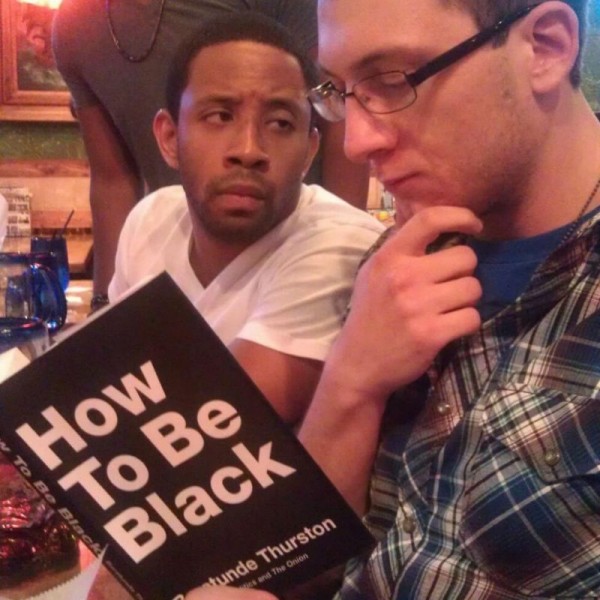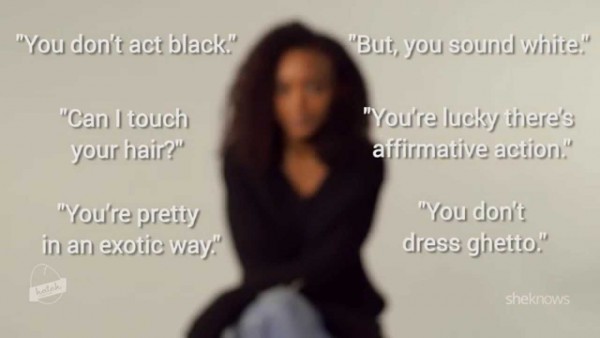“Stop attacking your allies!” –White Proverb
Okay, it’s not really a white proverb. This is the favorite rallying cry of a certain kind of ally1 — the kind that assumes their self-proclaimed ally status means that any disagreement with them is an attack. And those in need of allies should be careful of attacking, else they will have none.
There’s a lot of bullshit wrapped up in this.
The main problem being that just because you’re an ally doesn’t mean you magically always act in the best interests of the group you’re allied with, and nor should you assume you are. An ally is not some glittery state of being in which you can do no wrong, in which your presence is always wanted or helpful, in which the loss of you represents a great loss to the cause. Sometimes allies are more here for themselves than they are for others.
“Sometimes allies are bad actors.”
That last is a quote from the panel “What Happened With WisCon Last Summer?” Mikki Kendall was the one who said it. She said it in response to Pat Murphy, who expressed sadness that the actions of some people on the WisCon ConCom caused longtime volunteers of the same to drop out of the organization. The people who left are those who have done a ton of work for the convention and for the fan community. This is not in dispute. They are people who have worked to build a feminist space within SF fandom, and are committed to their feminist values. This is not in dispute.
They are also people who, at some time or another over the past two years, have failed to be good allies to people in their feminist space who are not from their same generation, their same race or ethnicity, their same class.
That doesn’t mean they’ve done no good work, or that all their good work is moot. Plus, no one is perfect. Even the most hardcore social justice warrior (or paladin, cleric, rogue…) can fail to be a good ally to someone from a different group or identity at some point. What matters, what always matters, is how you deal with your fail. Did you apologize? Did you sit with yourself and examine what happened and why? Did you think about what being a good ally really means? Did you recommit yourself to being a better ally in the future?
Or did you double down with the idea that you’re an ally, not one of those bigots out there, and you marched with King, and you supported some feminists in 1973, and you’ve done all this work, and therefore you didn’t do anything wrong, you find nothing objectionable in what you did (or failed to do), and so the problem must be with the people you’re allied to, and not with yourself. In other words: did you center yourself?
The kind of people who say Stop Attacking Your Allies are the kind who tie their allyship to specific behaviors from the group they’re supposedly interested in helping. They, the ally, want to dictate the terms of the relationship and want to be the one to say “Now it’s the time to address this thing,” instead of allowing the marginalized and oppressed folks to make that determination. The ally wants to set the rules for what is appropriate discourse, to determine the parameters for politeness, and the conditions under which they will use or set aside their privilege. Do I need to explain the problems with that?2
Are we really “driving away” our allies, or are we making it clear that we won’t accept an ally relationship that is about the needs and comfort of the allies above everyone else? Yes, we might be making that clear with harsh language. And yes, in making that clear we might hurt some feelings. That happens when allies don’t listen to the polite, patient words that come before the yelling.
We are far more patient with our allies because they are allies. Because we know, on some level, that they do get it. And we want them to understand. We need our allies.
But we don’t need them so much that we’re willing to be treated like they know what’s best better than we do. Nor so much that we will tolerate them not listening or being dismissive when we say “this is wrong, hurtful, damaging, dangerous, and deadly.” Allies that do? We don’t need.
Sometimes allies are bad actors.
Do you want to be a good actor? To be the real ally you consider yourself to be? Then I suggest you read this guide to allyship & interracial friendships on The Feminist Griote, as it breaks allyship down extremely well. The article focuses on white allies to POC, particularly women of color, but the kinds of questions raised–Do you, white person, have any POC friends? Do you allow your closeness to POC to give you an excuse to not police your whiteness?–apply to many an ally relationship.
Read that article, sit with it, and consider whether you have been a bad actor in the past. If you have, then the best way to make up for that is to do better going forward.
Footnotes
- I have an acquaintance who just loves to whip this out when someone confronts her on her less than sterling attitudes about progress and diversity. [⇧]
- Nevermind, I’ll let Dr. King do so: “I must confess that over the past few years I have been gravely disappointed with the white moderate. I have almost reached the regrettable conclusion that the Negro’s great stumbling block in his stride toward freedom is not the White Citizen’s Counciler or the Ku Klux Klanner, but the white moderate, who is more devoted to “order” than to justice; who prefers a negative peace which is the absence of tension to a positive peace which is the presence of justice; who constantly says: “I agree with you in the goal you seek, but I cannot agree with your methods of direct action”; who paternalistically believes he can set the timetable for another man’s freedom; who lives by a mythical concept of time and who constantly advises the Negro to wait for a “more convenient season.” Shallow understanding from people of good will is more frustrating than absolute misunderstanding from people of ill will. Lukewarm acceptance is much more bewildering than outright rejection.” [⇧]














